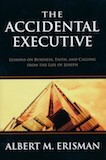No Pasa Nada: The Call to Slow Down
Blog / Produced by The High Calling
Sevillians aren’t quite so concerned with punctuality as Americans. They have a phrase—no pasa nada—which literally means, “nothing happens.” It’s similar to the American phrase, “no big deal.” Late for a meeting? No pasa nada. Need to skip class today to take care of a personal issue? No pasa nada.
Such a cultural mindset was freeing to someone like me, pushing myself to maximize my cross-cultural experiences while studying abroad for a semester in college. Always moving on to another enriching experience, my schedule was busier than ever and I kept packing in more than ever.
Yet, the more no pasa nada I experienced, the more I wanted. And although it took months of rebellion before I could succumb to this laid-back way of life, that little expression eventually saved me. There was a power to the words that transcended shame, a potency in embracing the unexpected. That simple, carefree phrase taught me to let go of my little plans in exchange for a bigger picture. It meant being able to laugh at myself at times and accept when things didn’t turn out the way I’d hoped. That semester was full of no pasa nada moments in which I was stirred awake, realizing I was rushing when I should have been resting.
One night after supper, I did something different: I stayed home. Sitting with my host mother, Loli, in the living room where the TV provided the after-dinner entertainment, I didn’t do my normal evening custom. Instead of excusing myself and heading out for the night, I stayed put. Every night, Loli did this; she sat in front of the television, often accompanied by Daniel, my American peer in the study abroad program. This always baffled me. Why wouldn’t he join me in taking advantage of every moment we had here? It seemed lazy, like he was squandering a great opportunity.
But night after night of going out had worn me down to exhaustion. Anything, I guess—even flamenco clubs in Seville—can start to feel old. The sense of adventure had faded, and I was searching again for what was really missing.
Daniel, Loli, and I watched TV that night. And we laughed for hours. When Loli would laugh hysterically at something we didn’t quite understand, we’d fake a few chuckles. The moment was entirely mundane, but nonetheless magical.
Around midnight, we said good night and went to bed. And that was all there was to it. No stunning breakthroughs or grand experiences. Just a night with the woman who made our meals and loved us better than we deserved. I had traveled across the Atlantic Ocean to run away from the ordinariness of life, to find an adventure. I never expected much from my host family; they were just the launching pad for my adventurous exploits.
But in my striving to build cross-cultural relationships and take on the nightlife of Seville, I found myself tired. A life filled with movement, with constant motion and no rest stops, isn’t a life at all. It’s tourism. Life’s mundane moments—ordinary times of TV-watching and breakfast-eating—can be embraced as a slow, deliberate, beautiful way of life if we pay attention and see what’s really there.
After that night, I gave up on the constant outings, weekends away, and began to look for a simpler, slower kind of life. I found it at “home” with Loli, around the dinner table and the TV. I started going to bed earlier, waking up at a decent hour, and getting to the table before she did. Instead of rushing through a delicious meal, I took my time with the special toast she made. The breakfast and Bible study and moments of conversation before the day started were simple graces, gentle reminders that I was going too fast. I finally stopped fighting them and took my time, allowing myself to enjoy the simple events preceding my big plans for the day.
Soon, I learned that few other students in our program ate freshly baked bread for breakfast each morning, and that nobody’s señora sat around waiting to read the Bible with them. I was lucky and didn’t even know it. Letting go of busyness and embracing no pasa nada, I began to hear the call to slow down and appreciate the gifts that were right in front of me.
_________________________
Jeff Goins is a full-time writer, blogger, and speaker. He is the author of Wrecked and The In-Between. You can follow him online at his award-winning blog, Goinswriter.com, or connect with him on Twitter @JeffGoins.
Post is a modified excerpt from Jeff's book The In-Between. Image by Lieven Soete. Used with permission. Sourced via Flickr.





